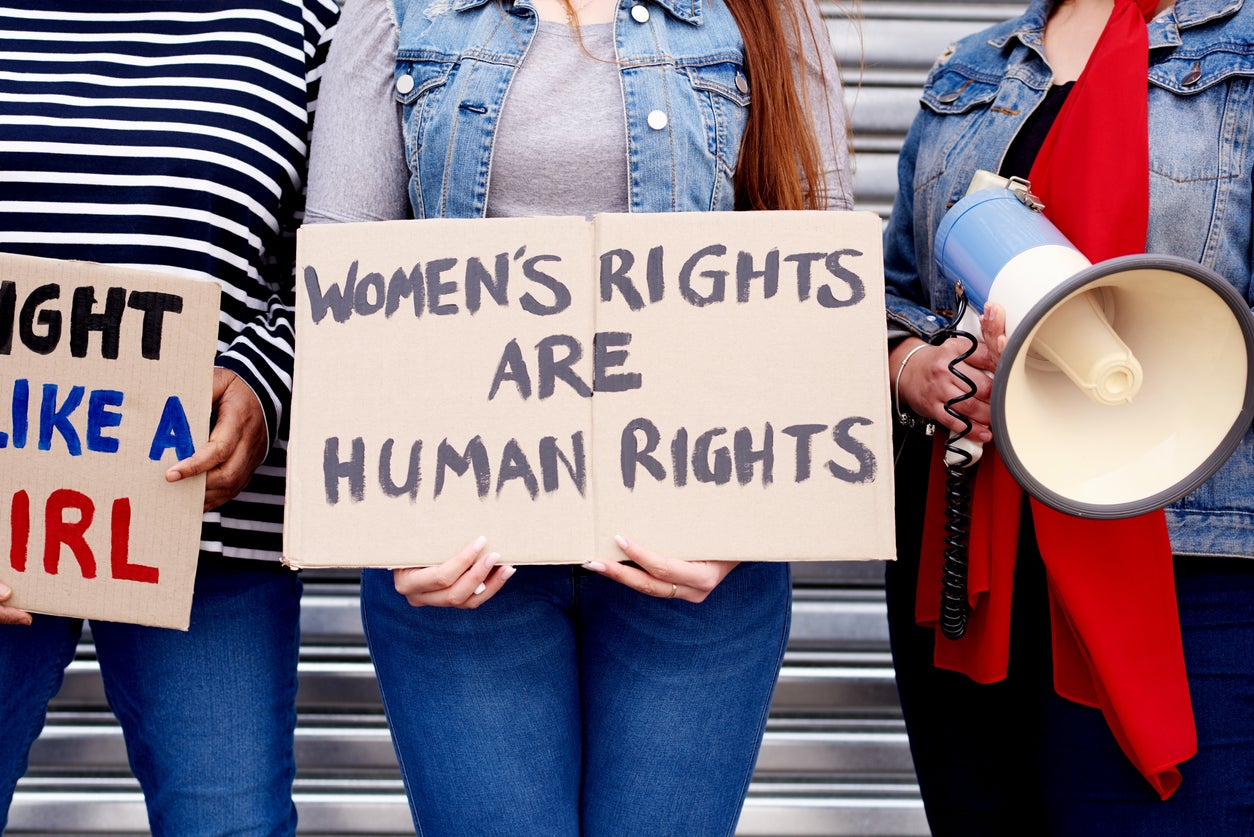Covid has eroded the gender progress of the last 25 years – bodily autonomy is still a human right
The pandemic has had a disproportionate effect on women and girls' access to sexual and reproductive health services, writes Asa Regner, Tabata Tesser and Luna


A quarter of a century ago, a historic moment for the rights of women and girls took place. More than 180 countries came together to take part in the Fourth World Conference on Women in Beijing, signing a pledge – The Beijing Declaration and Platform for Action – to take bold, strategic action on gender inequality. It was a watershed moment, a blueprint for progress to come.
The world of today looks very different than it did at the turn of the century, but the fight is far from over. Despite committing to widespread change, no single country today can say that it has achieved gender equality. Women and girls continue to be subject to discriminatory laws and policies, are chronically underrepresented in positions of power and leadership, and according to the World Health Organisation as many as one in three women and girls have experienced physical or sexual violence.
As a leader who was there in Beijing, and two activists from Brazil and Australia who grew up with the legacy of the Beijing Declaration, we are coming together now to say that the fight must continue, we must continue to advance towards gender justice.
If the decades since the Beijing Declaration have been a new age for gender equality, then the post-Covid-19 world is the next. If 2021 is to be our year of hope and progress, and to recover and remake our world, we need a united approach for equal rights and bodily autonomy.
Young activists, including the SheDecides 25x25, must play a leading role in the recovery, alongside those who were there in Beijing and beyond. This must involve people of all backgrounds because the world we inherit must be shaped in our image. We must continue to be more inclusive and embrace all women and girls, in all their diversity.
This is absolutely critical because the Covid-19 pandemic has challenged, and in some instances undone, the progress of the last 25 years, deepening existing inequalities and throwing into sharp relief the poor state of women’s bodily autonomy around the world.
Read more:
We have seen the disproportionate effect it has had on women and girls, particularly in low- and middle-income countries, and how their choices are limited by lockdowns, disrupted supplies, shuttered services and policy choices that have reduced access to essential sexual and reproductive health and rights services, including abortion, which were safe and legal. As personal freedoms have been restricted, important sexual and reproductive health services have become next to impossible to access for millions. Domestic abuse has skyrocketed. Sex education has stalled.
These conditions are not simply a result of the pandemic. Women and girls’ bodily autonomy – their freedom of choice – has faced sustained attacks for many years, impacting women and girls’ reproductive rights.
It’s a wake-up call. Bodily autonomy is at the core of human rights and gender equality; it is linked to enjoying the right to education, to work, and to political participation. It is central to the right of women and girls to have control over and decide freely and responsibly on matters related to their sexuality and individual agency. Bodily autonomy and sexual and reproductive health and rights are integral to realising our common vision across generations that women’s rights are human rights. We must use intergenerational co-leadership to realise this vision for the women and girls of the past, present and future.
We are proudly leading the fight for a feminist future forged by this intergenerational collective action, guided by the words "my body, my choice". We must continue to be optimistic. In the Generation Equality Forum and its Action Coalitions, we have a rare opportunity to come together to fiercely defend the hard-won rights, to stand with women and girls' rights defenders and to renew commitments and make new ones. This year is our opportunity to act as one — to make sure that, finally, she decides.
Asa Regnér is deputy executive director of UN Women
Tabata Tesser and Luna are bothSheDecides25x25 Generation of Equality activists.
The Generation Equality Forum kicked off in Mexico City on 29–31 March 2021, and will culminate in Paris, 30 June – 2 July 2021, as a rallying call for global action. One action coalition involved is focused on Bodily Autonomy and Sexual and Reproductive Health and Rights.
The Generation Equality Forum, a global gathering for gender equality, convened by UN Women and co-hosted by the governments of Mexico and France with the partnership of civil society and youth, is offering an opportunity for activists, governments, private sector and multilateral organisations, from across generations to come together to make commitments to advance gender equality globally.
Join our commenting forum
Join thought-provoking conversations, follow other Independent readers and see their replies
Comments